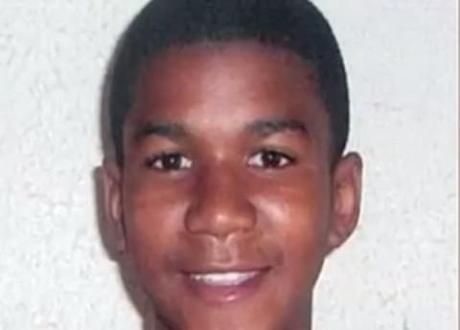
Trayvon Martin
The shooting of unarmed black teenager Trayvon Martin in Florida has exploded into the American public consciousness, raising questions about race relations and equality in the US. Martin, 17, was returning home after a trip to buy snacks on the evening of 26 February when he caught the attention of 28-year-old George Zimmerman, a local neighbourhood watch volunteer. Zimmerman called 911 and claimed the teenager was acting suspiciously; despite specific instructions from the operator not to do so, Zimmerman, armed with a 9mm handgun, pursued Martin. An altercation ensued, which left the unarmed 17-year-old dead from a gunshot wound to the chest.
The fact that Zimmerman has remained at liberty despite admitting to the killing has caused outrage. Florida police have insisted they had no grounds for an arrest because Zimmerman had claimed self-defence under the state’s ‘stand your ground’ statute, and there is no evidence to disprove his account. But amid growing public fury, the FBI and the Justice Department have announced a new investigation into the shooting.
Florida’s self-defence law under scrutiny. Daniel Nasaw explained at the BBC that Florida’s self-defence statute “states that people have no duty to retreat from a place they are legally allowed to be, and have the right to use deadly force if they ‘reasonably’ believe they or another person are threatened with death or serious harm.” Nasaw pointed out that Florida is notable because the statute doesn’t just allow for a self-defence argument at trial but “can make a person who successfully claims self-defence immune from arrest or prosecution”. Supporters of the law argue that Florida’s self-defence law deters crime and allows innocent people to protect themselves, reported Nasaw. However, critics believe the statute is open to abuse, particularly as “the laws in Florida and other states with similar laws do not require there be an actual threat, only that the shooter ‘reasonably believe’ he or she is in mortal peril”.
“He’s coming towards me. He’s got his hand in his waistband. And he’s a black male … Something’s wrong with him. Yup, he’s coming to check me out. He’s got something in his hands. I don’t know what his deal is … These assholes, they always get away,” George Zimmerman told the 911 dispatcher before the shooting, heard on recordings released by Florida release after pressure from Martin’s family. Source: The Guardian.
Gun dependence. “The poison may not be racism but the psychotic love affair with guns that afflicts too much of America,” suggested The New York Daily News. Since the ‘stand your ground law’ came into force in Florida, “the number of criminal defendants claiming justifiable homicide has tripled in the state, and the defense has worked in most cases,” pointed out the paper, calling for a full investigation into the killing.
Florida police under fire. “As more evidence emerges, including revelations that police did not test Zimmerman for drugs and alcohol before releasing him after a short detention, the police department is coming under more and more criticism for its handling of the case,” wrote Patrick Jonsson at The Christian Science Monitor. Jonsson reported that the Martin family’s lawyer has released a taped statement from Trayvon’s girlfriend, whom he was talking to on his mobile phone as events unfolded. The teenager was apparently concerned that Zimmerman was following him and broke into a run to escape his pursuer.
“This kid was simply trying to walk home and get out of the rain while he talked to his little friend. And that’s all he was doing. He was completely innocent,” said Ben Crump, lawyer to the family of slain teenager Trayvon Martin, reported Reuters.
‘Racist Elmer Fudd’. “From where he spotted Martin, Zimmerman could determine nothing more than that the teen was guilty of Walking While Black,” wrote Mobutu Sese Seko at Gawker. Assessing Zimmerman’s self-defence claim, Seko pointed out that he chose to pursue the teenager through the neighbourhood, “playing Racist Elmer Fudd”. What is so depressing about this case is that it is so familiar and unsurprising: “This could have happened anywhere,” said Seko.
Under suspicion. “One of the burdens of being a black male is carrying the heavy weight of other people’s suspicions,” wrote Jonathan Capeland at a Washington Post blog. Capeland reported that back in the 1980s, his mother taught him never to talk back to police or to run in public in cased he aroused suspicion. “This is 2012. So much has changed for the better since then. But then comes along a Trayvon Martin to remind us that the burden of suspicion is still ours to bear. And the cost for taking our lives might be none,” Capeland wrote.
Outrage slow to grow. The Kony 2012 campaign galvanised people across the US, provoking outrage at atrocities carried out in Uganda, pointed out Allison Samuels at The Daily Beast. But outrage has been “slow to build” over the Trayvon Martin case, even though the killing was closer to home: “Can real justice, mercy, and compassion be demanded for those in a foreign land and not for those closer to home? Is it somehow easier to feel the pain and suffering of those of a different race and browner faces when they aren’t so up close and personal?”
Listen to a recording to the 911 call made by George Zimmerman ahead of the killing.

